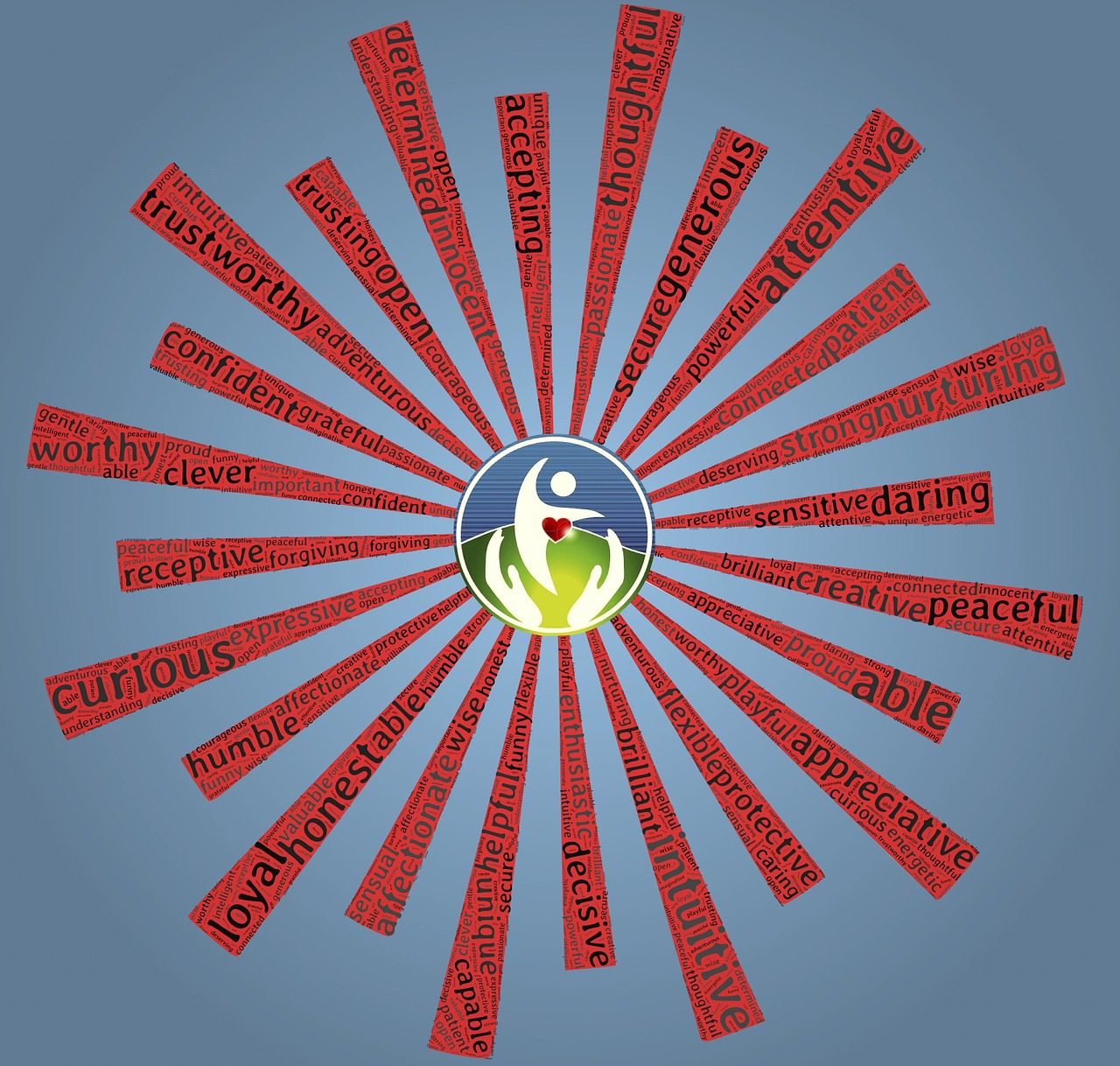So, you want to improve yourself and create an effective self-improvement plan? Look no further! In this article, we will explore the steps and strategies you can take to craft a plan that will help you reach your personal growth goals. Whether you aspire to develop new skills, boost your confidence, or achieve a healthier lifestyle, this guide will provide you with practical tips and insights to create a plan that is tailored to your unique needs and aspirations. Get ready to embark on a transformative journey of self-improvement!
Identify Areas for Self-Improvement
Evaluate Your Strengths and Weaknesses
To create an effective self-improvement plan, the first step is to evaluate your strengths and weaknesses. Take some time to reflect on the aspects of yourself that you excel in and those that you struggle with. This self-reflection will allow you to target specific areas that you want to improve upon. Identify the skills, habits, or behaviors that you believe will have the most significant impact on your overall well-being and personal growth.
Set Clear Goals
Once you have identified the areas of self-improvement, it is essential to set clear goals. These goals should be specific, measurable, achievable, relevant, and time-bound (SMART). Instead of setting vague goals like “be more successful” or “be happier,” break them down into concrete and measurable objectives. For example, if you want to improve your public speaking skills, a specific goal could be to deliver a confident and engaging presentation to a large audience within six months.
Prioritize Which Areas to Focus On
While it may be tempting to tackle all areas of self-improvement simultaneously, it is crucial to prioritize and focus on one or two areas at a time. By concentrating your efforts on a specific goal, you can devote the necessary time and energy needed for meaningful progress. Start with the areas that will have the biggest impact on your life or those that align with your long-term aspirations. As you make progress in one area, you can move on to the next, creating a more sustainable and effective self-improvement journey.
Develop a Positive Mindset
Believe in Your Ability to Change
Creating a positive mindset is a fundamental aspect of any self-improvement plan. It is essential to believe in your ability to change and grow as an individual. Cultivate the belief that with effort and determination, you can overcome obstacles and develop new skills. This shift in mindset will empower you to take action and persevere through challenges, even when things get tough. Remember that self-improvement is a continuous journey, and trusting in your own capabilities is key to achieving success.
Cultivate Optimism
Optimism plays a vital role in self-improvement, as it provides a sense of hope and resilience. Instead of dwelling on setbacks or failures, cultivate an optimistic outlook by focusing on the opportunities and lessons they present. Embrace a growth mindset, which sees challenges as opportunities for learning and personal development. Train yourself to view setbacks as temporary and solvable hurdles that can ultimately lead to growth and improvement. By maintaining an optimistic perspective, you can navigate through difficulties with a positive attitude and keep moving forward.
Practice Self-Compassion
Self-compassion is the practice of treating yourself with kindness, understanding, and forgiveness. It is essential to be gentle with yourself as you embark on your self-improvement journey. Acknowledge that making positive changes takes time and effort, and allow yourself to make mistakes along the way. Treat setbacks as opportunities for learning and growth rather than reasons for self-criticism or self-doubt. By practicing self-compassion, you can maintain a healthy and supportive relationship with yourself, fostering motivation and resilience in the face of challenges.

Create Specific and Measurable Objectives
Define What You Want to Achieve
To create an effective self-improvement plan, it is crucial to define what you want to achieve. Take the time to clarify your vision and identify what success looks like to you in each area of improvement. For example, if your goal is to improve your physical fitness, define what level of fitness you want to achieve. Whether it's running a marathon or simply being able to go for a jog without feeling winded, having a clear vision will help guide your efforts and provide a sense of purpose.
Break Down Goals into Smaller Tasks
Once you have defined your goals, break them down into smaller, manageable tasks. This allows you to create a roadmap for your self-improvement journey and makes the process less overwhelming. Each task should be specific, actionable, and aligned with your overall objectives. For example, if your goal is to develop better time management skills, break it down into tasks such as creating a daily schedule, prioritizing tasks, and eliminating distractions. By breaking larger goals into smaller tasks, you can track your progress more effectively and stay motivated along the way.
Establish a Timeline
In addition to breaking your goals into smaller tasks, it is essential to establish a timeline for completion. Setting deadlines creates a sense of urgency and helps you stay accountable to your self-improvement plan. Determine realistic target dates for each task or milestone and create a timeline that outlines the sequence of actions you need to take. This timeline will serve as a guide and enable you to stay on track and measure your progress as you work towards your goals.
Gather Resources and Information
Research and Read
To support your self-improvement efforts, it is essential to gather resources and information related to your chosen areas of improvement. Research books, articles, podcasts, or online courses that provide insights and guidance on the specific skills or habits you want to develop. Seek out reputable sources and take the time to absorb valuable knowledge and strategies. Reading and learning from experts in the field will help you gain a deeper understanding and enhance your ability to make meaningful progress.
Attend Workshops or Seminars
Another valuable resource for self-improvement is attending workshops or seminars related to your areas of focus. These events offer opportunities to learn from professionals who specialize in the skills or habits you want to develop. Workshops and seminars provide hands-on experiences, interactive learning, and the chance to connect with like-minded individuals who are also on their own self-improvement journeys. Take advantage of these opportunities to gain new perspectives, ask questions, and further enhance your understanding and skills.
Find Mentors or Coaches
Having a mentor or coach can be incredibly beneficial when creating and executing your self-improvement plan. A mentor is someone who has experience and expertise in the areas you want to improve and can provide guidance, advice, and support along the way. They can offer valuable insights, hold you accountable, and help you navigate challenges that arise during your journey. Look for individuals who inspire you and share similar values or aspirations, and reach out to them to explore the possibility of establishing a mentoring relationship.

Develop a Plan of Action
Outline Steps to Reach Your Goals
With a clear understanding of your goals and the resources at your disposal, it is time to develop a plan of action. Outline the specific steps you need to take to reach each milestone or objective. Break down each task into actionable steps and determine how you will approach each one. For example, if your goal is to learn a new language, your plan may include steps such as enrolling in a language course, practicing vocabulary daily, and finding opportunities for conversation with native speakers. By developing a detailed plan, you can navigate your self-improvement journey with purpose and intention.
Identify Potential Challenges and Obstacles
While creating your plan of action, it is essential to anticipate potential challenges and obstacles that may arise along the way. Consider what barriers you may encounter and brainstorm strategies to overcome or work around them. This proactive approach allows you to be prepared and less likely to be derailed by unexpected setbacks. For instance, if you anticipate that lack of time may be a challenge, explore ways to prioritize your self-improvement activities and carve out dedicated time in your schedule. By identifying potential challenges in advance, you can develop strategies to overcome them, increasing your chances of success.
Create Contingency Plans
In addition to identifying potential challenges, it is helpful to create contingency plans. Contingency plans are backup strategies that ensure you have alternative options if your original approach doesn't work as expected. Life is unpredictable, and it is normal for things to not always go according to plan. Having contingency plans in place allows you to adapt and find alternative routes to your objectives. Consider different scenarios and formulate strategies that will allow you to stay on track, even if unexpected circumstances arise. This flexibility and adaptability will contribute to a more resilient and effective self-improvement plan.
Implement Daily Practices
Develop Good Habits
Implementing daily practices is crucial for consistent progress towards your self-improvement goals. One way to cultivate progress is by developing good habits that align with your objectives. Identify actions or routines that are vital to your self-improvement and incorporate them into your daily life. For example, if your goal is to improve your physical fitness, create the habit of exercising for at least 30 minutes every day. Consistency in practicing these habits will reinforce positive behaviors and bring you closer to your goals.
Establish a Routine
To support the development of good habits, establish a routine that incorporates your self-improvement activities. Designate specific times in your daily or weekly schedule to focus on your goals. Having a routine creates structure and helps you stay committed to your self-improvement plan. Choose times that work best for you and ensure that they are realistic and achievable. By incorporating your self-improvement activities into a routine, you will make them a priority and avoid the risk of neglecting them due to other demands on your time.
Monitor Your Progress
As you implement daily practices, it is essential to monitor your progress regularly. Keep track of the actions you have taken, milestones achieved, and any challenges you have encountered. Having a record of your progress allows you to see how far you have come and provides motivation to continue moving forward. It also helps you identify patterns or areas for improvement and make adjustments to your plan if necessary. Use a journal, an app, or any method that works best for you to document and review your progress regularly.

Seek Support and Accountability
Share Your Plan with Others
Seeking support and accountability is a valuable aspect of creating an effective self-improvement plan. Share your plan with friends, family, or trusted individuals who can provide encouragement and support along the way. By vocalizing your goals and intentions, you make them more tangible and commit to them in a public setting. Additionally, those who are aware of your self-improvement journey can offer words of encouragement, celebrate milestones with you, and help keep you focused and motivated.
Join Support Groups
Another way to find support and accountability is by joining support groups. These can be online communities, local meetups, or workshops focused on personal development and self-improvement. Being part of a supportive community allows you to connect with others who share similar goals and challenges. It creates a space for sharing experiences, seeking advice, and gaining inspiration from individuals who are on similar journeys. Support groups can provide a network of encouragement and accountability, keeping you motivated and engaged in your self-improvement efforts.
Find an Accountability Partner
Accountability partners are individuals with whom you can share your progress and goals on a more personal level. Choose someone you trust and respect, who is also committed to their own self-improvement journey. Regularly check in with each other, share your successes and setbacks, and hold each other accountable to the actions outlined in your respective self-improvement plans. Having an accountability partner provides an added layer of support and motivation, as you are both working towards your own growth while supporting one another.
Track and Evaluate Your Progress
Regularly Assess Your Achievements
In order to gauge the effectiveness of your self-improvement plan, it is important to regularly assess your achievements. Take the time to reflect on your progress, reviewing the goals you have accomplished and the skills you have developed. Celebrate your achievements and acknowledge the effort and dedication you have put into your self-improvement journey. This assessment will also help you identify areas where further improvement is needed, allowing you to adjust your plan accordingly.
Adjust Your Plan as Needed
As you evaluate your progress, be open to adjusting your self-improvement plan if necessary. Sometimes, goals or priorities may change, or you may uncover new areas for improvement. Adaptability is key to maintaining an effective self-improvement plan. Assess whether your original objectives are still relevant and meaningful to you, and make adjustments accordingly. Flexibility in your plan allows for growth and ensures that you are continuously addressing the most important areas of improvement in your life.
Celebrate Milestones
Recognizing and celebrating milestones along your self-improvement journey is essential for maintaining motivation and staying committed. Celebrate each accomplishment, whether big or small, as it represents progress towards your goals. Choose rewards or celebrations that align with your values and provide a sense of fulfillment and gratification. By acknowledging and celebrating milestones, you reinforce positive behaviors and experiences, making your self-improvement journey more enjoyable and sustainable.
Practice Self-Care
Take Time for Rest and Relaxation
Self-improvement goes beyond personal development and growth; it also involves taking care of your overall well-being. Make self-care a priority by scheduling regular periods of rest and relaxation. Listen to your body and mind, and allow yourself time to recharge. Engage in activities that bring you joy and help you unwind, such as reading a book, taking a walk in nature, or practicing mindfulness. Rest and relaxation are crucial for maintaining balance and preventing burnout on your self-improvement journey.
Eat Healthy and Exercise
A healthy body and mind are vital foundations for self-improvement. Pay attention to your nutrition and make conscious choices to fuel your body with nourishing foods. Regular exercise also supports overall well-being, providing numerous physical and mental health benefits. Incorporate physical activity into your routine and find activities you enjoy, whether it's going for a run, practicing yoga, or participating in a team sport. Taking care of your physical health will enhance your energy, focus, and ability to pursue your self-improvement goals.
Manage Stress Effectively
Stress can hinder progress and undermine your self-improvement efforts. Therefore, it is crucial to develop effective stress management strategies. Identify activities or techniques that help you relax and destress, such as deep breathing exercises, meditation, or engaging in hobbies. Prioritize self-care practices that promote relaxation and emotional well-being, and be proactive in managing stressors in your life. By effectively managing stress, you create a conducive environment for personal growth and optimize your chances of success.
Stay Motivated and Persistent
Visualize Your Success
In order to stay motivated and persistent on your self-improvement journey, visualize your success. Create a mental image of what achieving your goals looks like. Visualize yourself embodying the skills, habits, or behaviors you are working towards. The power of visualization lies in the ability to create a clear picture of success in your mind, which can serve as a source of motivation and inspiration. When faced with challenges or obstacles, revisit this visualization to fuel your determination and remind yourself of what you are striving to achieve.
Reward Yourself Along the Way
In addition to visualizing success, it is important to reward yourself along the way. Set up a system of rewards that provide external gratification for your accomplishments. These rewards can be small or significant, depending on the milestone you have reached. Treat yourself to something you enjoy, such as a night out with friends, a spa day, or a new book. These rewards serve as positive reinforcement, making your self-improvement journey more enjoyable and encouraging you to persevere.
Stay Committed to Your Goals
Lastly, staying committed to your goals is crucial for the success of your self-improvement plan. Self-improvement requires dedication and consistent effort over an extended period of time. Remember the reasons why you embarked on this journey in the first place and let those reasons fuel your commitment. Create reminders of your goals, such as vision boards or written affirmations, and place them in visible locations. Surround yourself with positive influences and individuals who support your growth. By maintaining a strong commitment to your goals, you lay the foundation for continued progress and transformation.
Creating an effective self-improvement plan requires self-reflection, goal-setting, commitment, and perseverance. By evaluating your strengths and weaknesses, developing a positive mindset, setting clear and measurable objectives, gathering resources and support, implementing daily practices, and practicing self-care, you can embark on a rewarding journey of personal growth. Remember that self-improvement is a lifelong process, and each step you take towards becoming the best version of yourself is an accomplishment worth celebrating. Stay motivated, stay persistent, and embrace the transformative power of self-improvement.